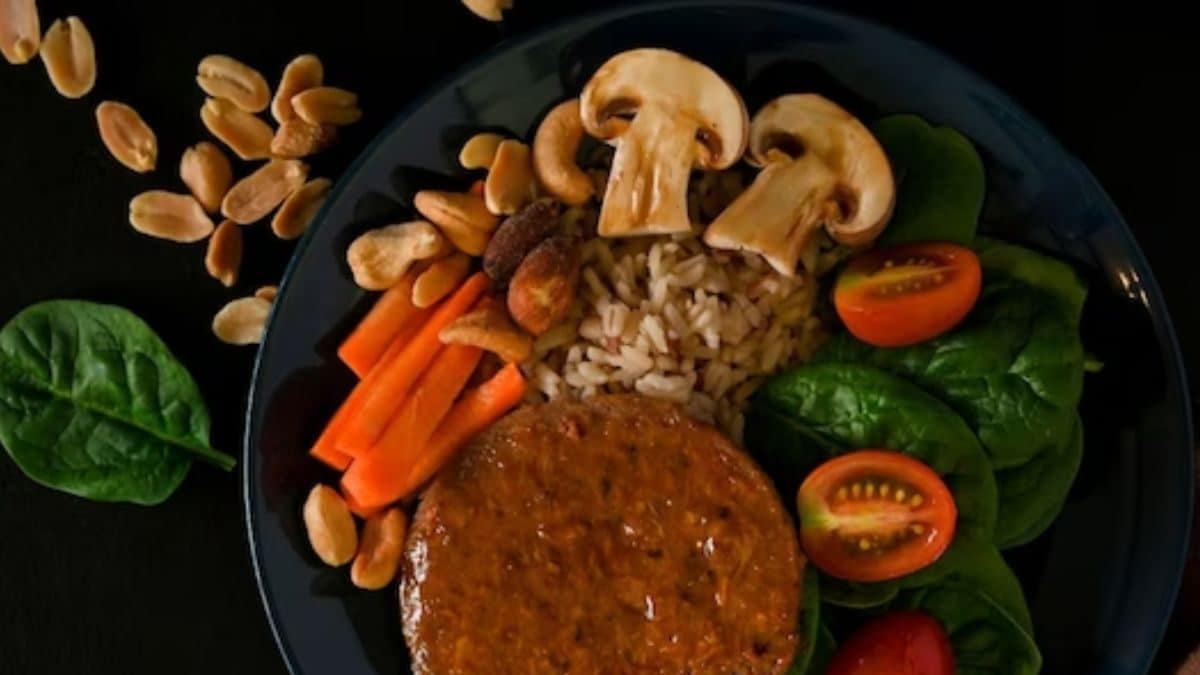5 Food Items You Should Avoid If You Are Diabetic! Here Is Why? – News18

Bacon, ham, salami contain high amounts of saturated fats and harmful chemicals that are not present in fresh meat. These can increase the risk of heart diseases.
For diabetics and prediabetics, it is important to be very mindful about the type of carbs and their portion sizes to be included in each meal
Carbohydrates are the primary fuel source along with other macronutrients like proteins and fats that provide energy to our body. All forms of carbohydrates except fiber are broken down into glucose in our body. This glucose is transported to all the body cells through our bloodstream with the help of Insulin (hormone produced by the pancreas). However, in Type-2 diabetes, our body cannot efficiently remove glucose from our bloodstream due to insufficiency or inefficiency of insulin, which leads to high blood glucose levels.
How do carbs affect our blood glucose levels?
“For diabetics and prediabetics, it is important to be very mindful about the type of carbs and their portion sizes to be included in each meal. Doing so will help prevent fluctuations in the blood glucose level and reduce risk of long-term complications. Further, it is also very important to know the glycemic index (GI) of foods. On a scale of 0 – 100, foods are classified or ranked based on their effect on blood sugar after digestion. Foods with a high GI, raise blood sugar levels more than foods with a low GI. Foods with a GI of 70 or more (rice, maida, sugar, potato, processed foods, bakery items) are considered high, foods with a GI of 56 to 69 (fruits) are considered medium, and foods with a GI of 55 or less (pulses, vegetables, dairy) are considered low,” says Dr Meghana Pasi, Nutrition Consultant, MyThali Program, Arogya World.
Pasi shares a list of foods one should avoid:
- Refined carbs
As these carbs are already processed and are in predigested forms (little or no fiber), our body quickly absorbs them and converts them into glucose. This increases blood sugar, and in sometime the person starts feeling hungry again. For eg. white bread, white pasta, some cereals, biscuits, bakery foods etc. - Sugars
Sugary foods contain high amounts of refined sugars and have little or no nutritional value which can cause sharp spikes in blood glucose. Sugar can also contribute to weight gain and increase the risk of heart disease and stroke. For eg. cakes, candies, chocolates, doughnuts, flavoured drinks, sodas etc. Sugars could be named as dextrose, molasses, maple syrup etc. on the ingredient list of many processed. Read nutrition labels before buying. - Foods with saturated fats
Unhealthful fats (saturated and trans fats) raise bad cholesterol and reduce good cholesterol levels. Many fried and processed foods, fries, chips, namkeens, baked goods, butter, cheese, frozen foods, palm oil contain harmful fats. - Alcohol
Alcohol can limit your liver’s ability to release glucose. Alcohol may also interfere with certain diabetes medications. - Processed meats
Bacon, ham, salami contain high amounts of saturated fats and harmful chemicals that are not present in fresh meat. These can increase the risk of heart diseases. - Salty foods
Foods that are high in salt can raise blood pressure. Salt may appear as “sodium” on a food label. Avoid excessive salt intake by limiting processed foods, canned soups, and salty snacks.
Additionally, monitoring blood sugar levels regularly, eating healthy well balanced diet and staying physically fit are essential aspects of diabetes management.
For all the latest lifestyle News Click Here


